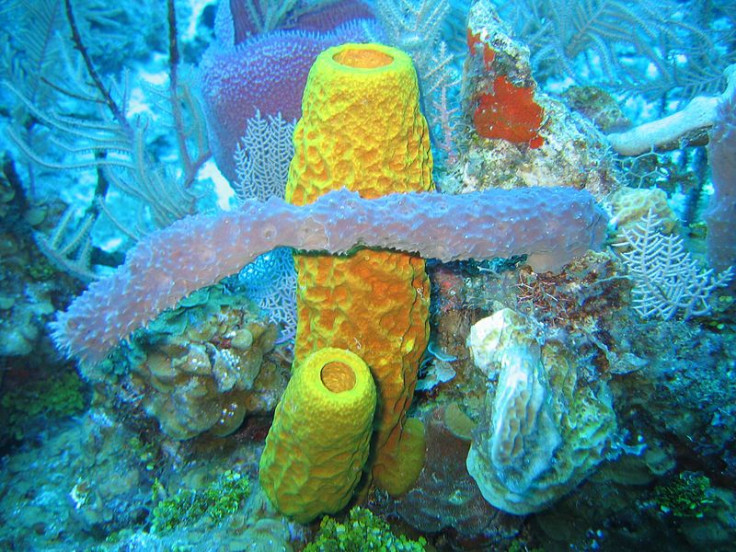Is SpongeBob Our Oldest Ancestor? Sea Sponges May Have Played A ‘Key Role’ In Evolution Of Life On Earth

It’s difficult to imagine that man could have evolved from an organ-less, multicellular sponge. Then again, that’s what hundreds of millions of years of natural selection will do to a species. According to a new study, published in the journal Nature Geoscience, we can thank our square-pants friend from Bikini Bottom for paving the way for more complex life on Earth.
Researchers in the U.K. challenge the long-held theory that life began in an already oxygen-rich ocean environment with evidence that it was actually sea sponges that oxygenated the oceans. It’s a classic chicken-egg scenario: Sponges needed at least some oxygen to survive, so how could they have oxygenated the oceans in the first place?
Scientists say that while, yes, there certainly was some oxygen around at the time the earliest sponges emerged, some 700 million years ago, the oceans gradually became more oxygenated as a result of sea sponges.
“The effects we predict suggest that the first animals, far from being a passive response to rising atmospheric oxygen, were the active agents that oxygenated the ocean around 600 million years ago,” Tim Lenton, a professor of geography at the University of Exeter and lead author of the study, said in a statement. “They created a world in which more complex animals could evolve, including our very distant ancestors.”
Lenton said that surface waters contained enough oxygen to support sea sponge life, but that the dark depths of the ocean were still devoid of oxygen. "We argue that the evolution of the first animals could have played a key role in the widespread oxygenation of the deep oceans,” he said.
Sponges contain pores and channels that allow nutrient-rich water to pass through them. They feed by filtering out tiny particles of organic matter from the water – organic matter that consumes oxygen as it rots.
By removing rotting, organic matter from the oceans 600 million years ago, sponges inadvertently allowed oxygen to thrive.
A more oxygen-rich ocean environment allowed larger and more mobile animals to evolve. These included the first predatory animals and marked the emergence of a modern marine biosphere.
″This study provides a plausible mechanism for ocean oxygenation without the requirement for a rise in atmospheric oxygen,” Professor Simon Poulton of the University of Leeds, who is a co-author of the study, said in a statement. “It therefore questions whether the long-standing belief that there was a major rise in atmospheric oxygen at this time is correct.”
© Copyright IBTimes 2024. All rights reserved.






















